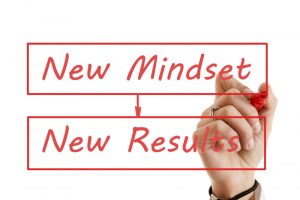As a professional development coach and consultant, I help people realize their full potential personally and professionally. When I ask a new client to tell me who they are, they typically answer with surface information like where they came from, how they got to where they are in their profession, short-range and long-range goals, etc. When I ask them why, however, more times than not, they give me that curious-puppy head tilt thing that I’ve come to accept as my cue to begin my work, leading them to the answer to three simple questions: What are your interests? What drives your personal behavior? What motivates you? The results, many times, are nothing short of amazing, as I watch people from any and every walk of life, in every phase of life, and at every professional level, discover the truth, and position themselves to reach their full potential.
From the university student just starting out, to the corporate executive seeking to inspire others, the key to success is encoded in our DNA. Each of us contribute to the workplace, our family, and our community in a way that nobody else can or ever will. What we do, how we do it, what motivates us, and how we perceive the world around us is hard-coded. When we understand the details of who we really are, we can acknowledge our perspectives, manage behaviors that derail us, and live up to our fullest potential. By utilizing The Birkman Method® personality assessment, my clients move beyond behaviors and view their unique drivers at the DNA level. Here’s what they discover….
What are your interests?
What do you like to do? What are your areas of interest? I’m talking about what you most enjoy doing, as opposed to the things for which you have skill or aptitude. The Birkman uses ten areas of interest, ranked from highest to lowest to give you a view into how the activities you tend to want to do naturally, align with job activities. Your degree of interest in any particular area alerts you to the types of activities you need in your work and play environment. By aligning these activities to jobs, your Interest scores provide insight into work areas most likely to motivate and energize you, and alert you to the jobs you should absolutely avoid. Just as with your personality, your interests don’t tend to change over time, so once you know this about yourself, you have an effective tool to better navigate every aspect of your life, throughout every phase of your life.
What drives your personal behavior?
Everybody can see how you act; both when things are going well…and when they’re not! Your Behavior, whether good or bad, is visible to the world around you, which is why the ability to manage it effectively is critical to success. The hard part is the complexity inherent in the human condition, which is where The Birkman Method® becomes my tool of choice. Birkman uses eleven different behavioral components to describe human behavior, presenting it in terms of Usual Behavior, Stress Behavior, and Motivation. These components work in relation with one another to influence how we behave and interact with others. Understanding these drivers is the key to understanding Usual Behavior and Stress Behavior. Here’s why that’s important….
Usual Behavior, appropriately described as strengths, is what others see when you’re at your absolute best. This behavior is what people love about you. It is typically productive, admired, and well received. Your Stress Behavior is just the opposite. While it is just as visible as your strengths, your Stress Behavior has the potential to leave career and/or relationship debris…namely your own. Typically triggered when you’re under pressure, Stress Behavior is reactive, negative, and incredibly ineffective.
What motivates you?
To exhibit your Usual Behavior as described above, what has to happen? I’m referring to the elements that fuel your absolute best performance. I’m referring to your Needs. At a summary level, Needs are the wrapper that holds your ideal environment. Made up of your very own hand-picked, genetically-encoded preferences, desires, and perceptions, Needs are your organized expectations of the world. They are how you want (expect), to be treated by your environment and everyone in it. It’s what I like to call Abby Land; the place where everyone and everything speaks, acts, walks, and talks, in alignment with my expectations. There’s only one problem…Needs are invisible! Nobody can see them, and based on our Usual Behavior, it’s highly unlikely anybody will anticipate them. That’s why understanding our Needs, allows us to manage them effectively.
The bottom line is self-awareness. By knowing not only who we are, but also what drives us, we are better equipped to tap into our strengths, manage our expectations, and respond to life with the professionalism befitting our full potential. Yes, the human condition is complex, but that’s what makes us human, and that’s what instills in us the amazing potential we have yet to discover.





